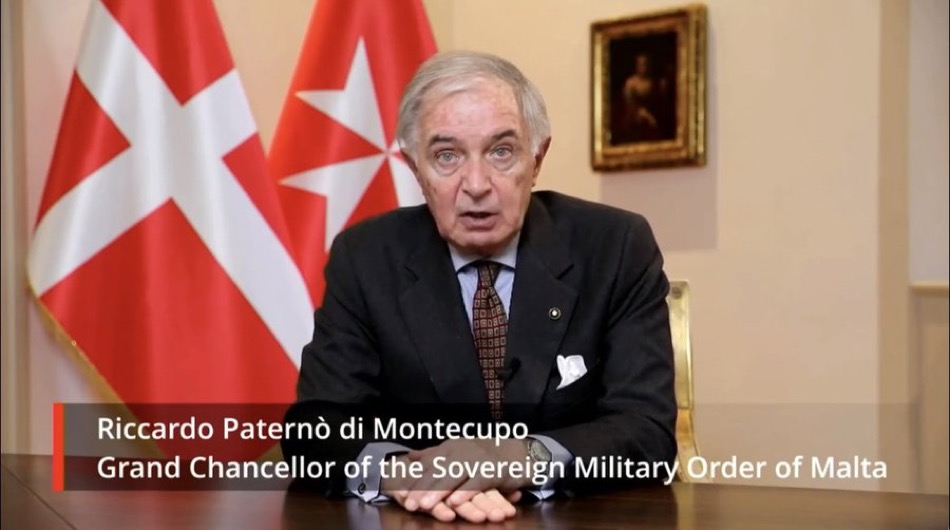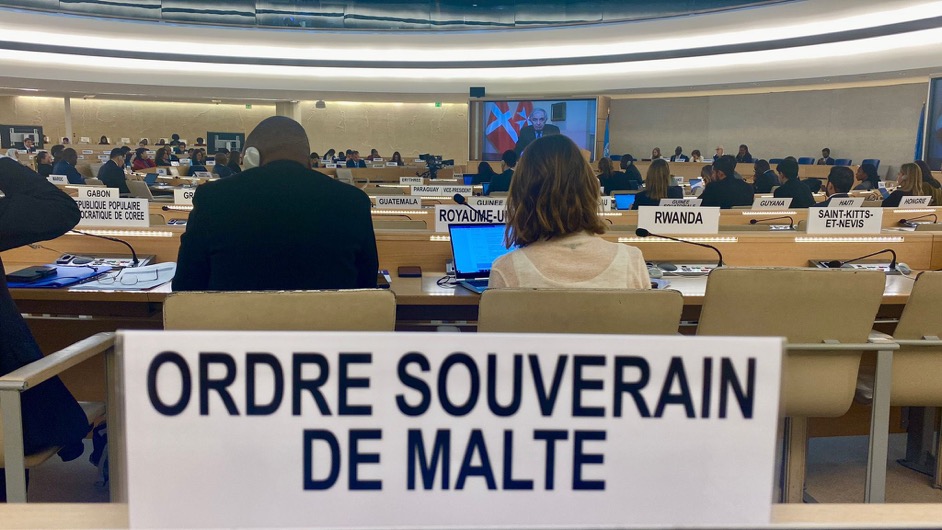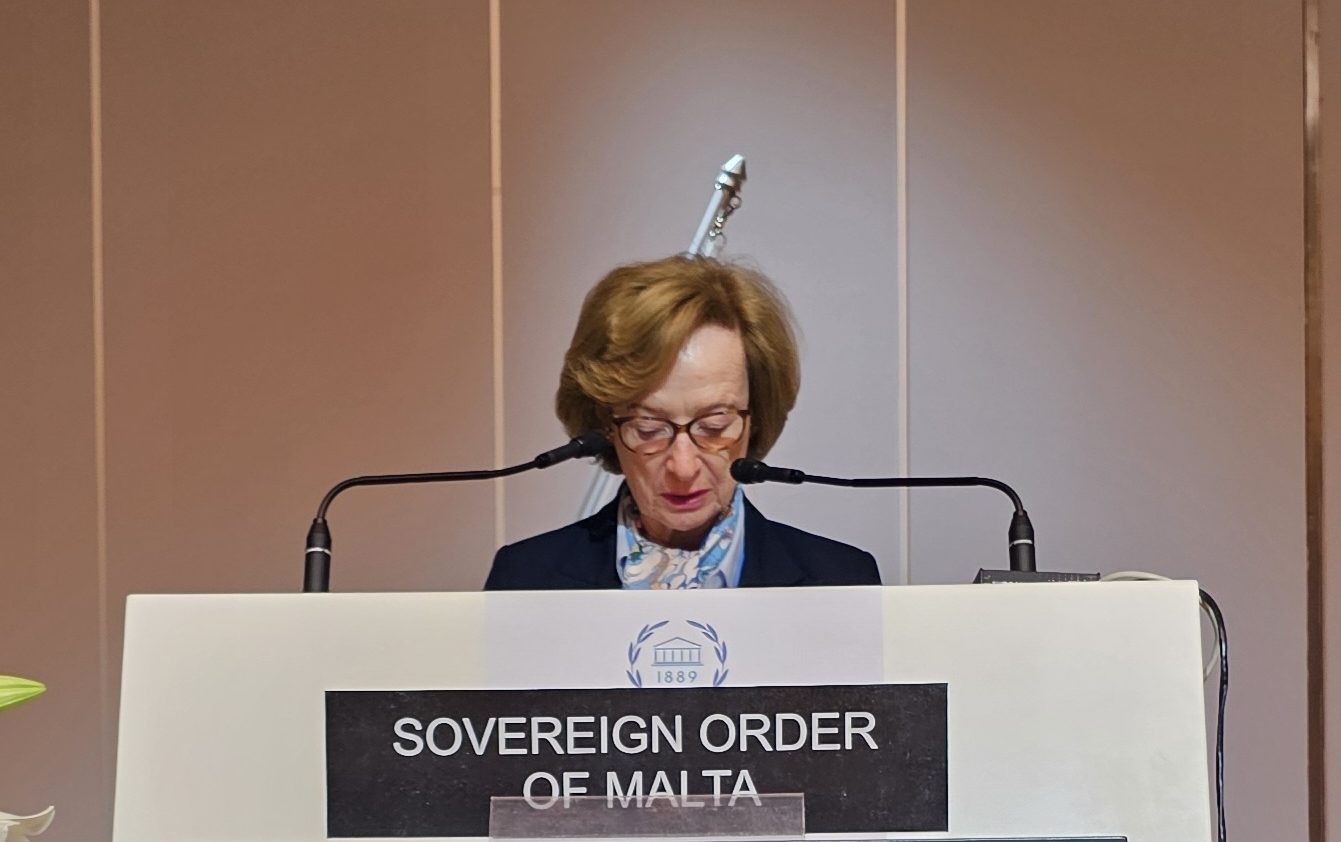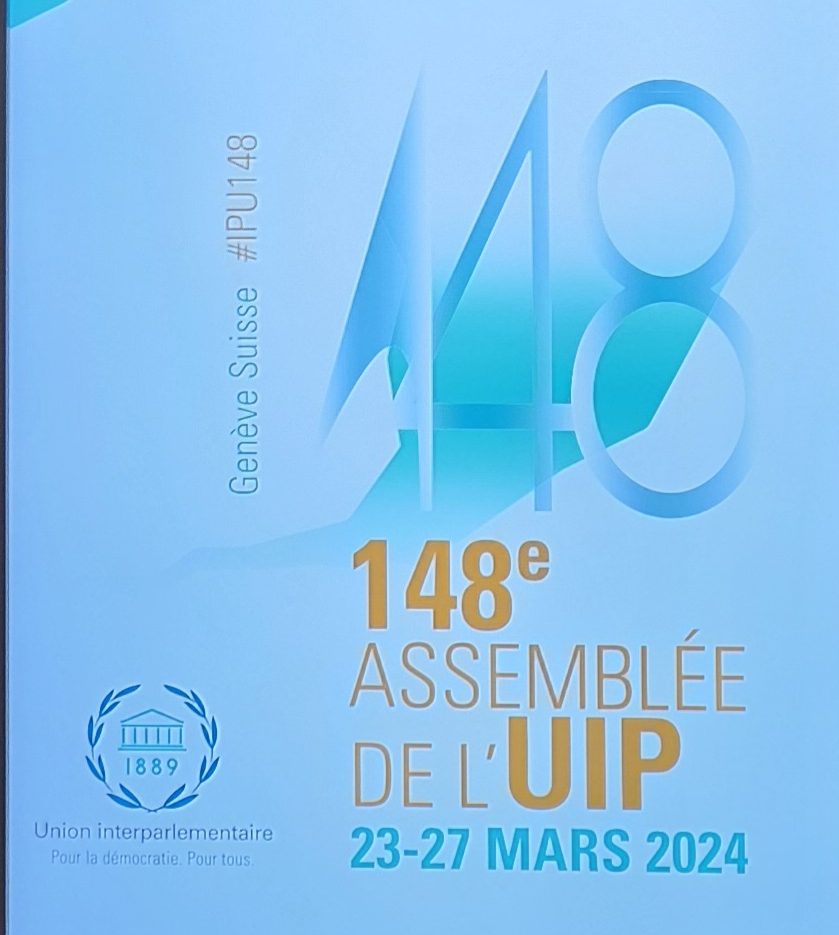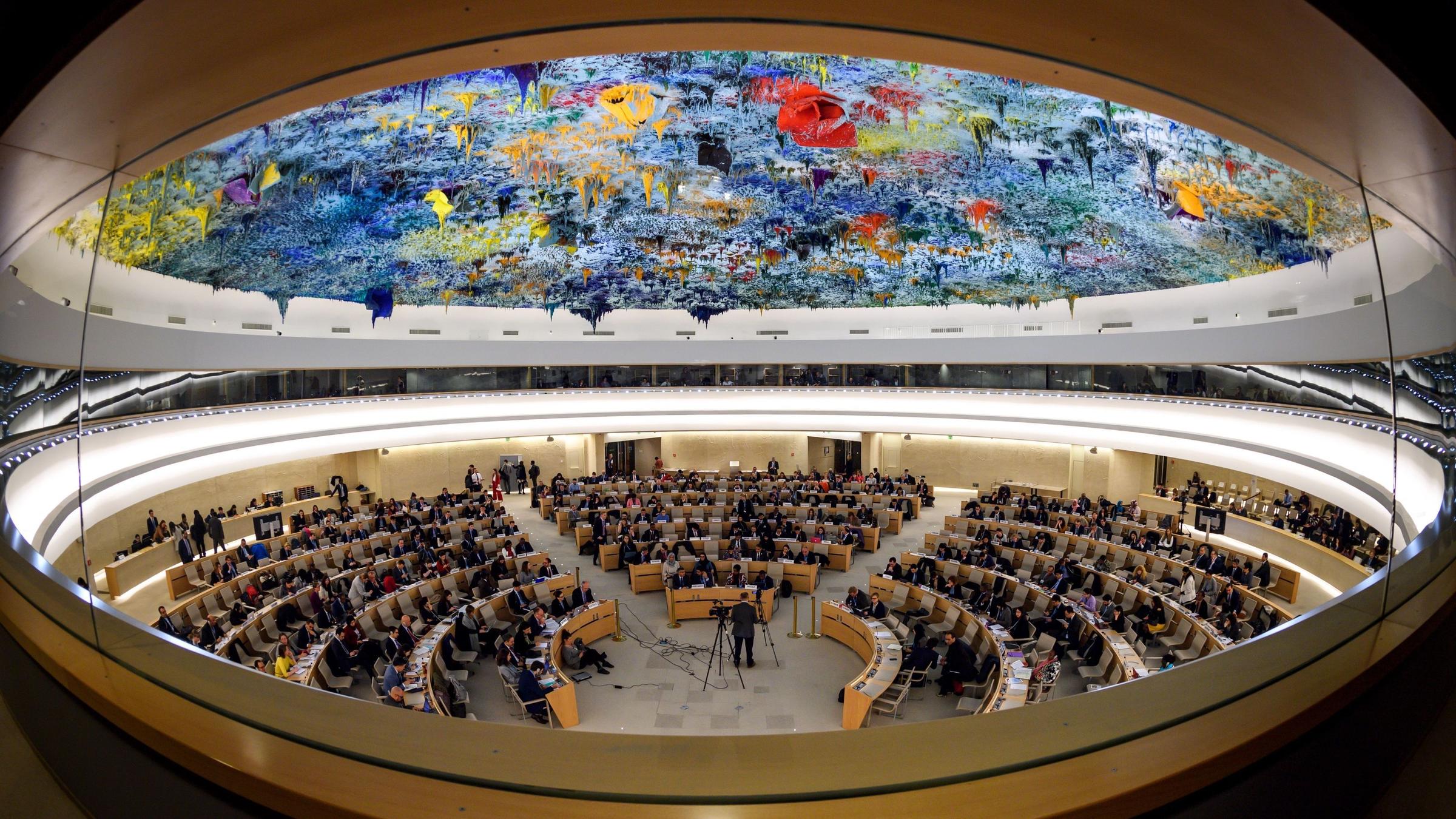The Grand Chancellor of the Sovereign Order of Malta, H.E. Don. Riccardo Paternò di Montecupo, addressed the High-Level Segment of 55th regular session of the United Nations Human Rights Council (HRC55) in Geneva, which opened on 26 February.
“Since my last address to this Council in March 2023, the world is confronted with even more challenges, with an increasing number of armed conflicts, where the fundamental principles of international humanitarian and human rights law are disrespected. We are still witnessing grave violations of basic human rights, such as the right to freedom of religion and belief, the right food, water, shelter, and health, always affecting disproportionately the most vulnerable, leading to their exclusion from society, said the Grand Chancellor, on the second day of the session. “As we all know, the multilateral system is facing a grave crisis. But multilateralism is indeed the best, and perhaps even the only, solution to tackle today and tomorrow’s challenges, move forward towards building more peaceful, just, fair, and equitable societies, with human dignity at its heart.”
The Gran Chancellor reminded those present how the Human Rights Council “is fundamental and must not be politicised as to ensure its effective work”. To fulfil its mission, “it should remain a forum for dialogue among States, with the participation of civil society”.
With regard to the interactive debate on freedom of religion or belief, the Grand Chancellor emphasized that “the Order of Malta is particularly concerned by the rising global crisis of religious persecution. Believers of all faiths continue to be victims of persecution. Yet, despite mounting evidence of the disastrous consequences of religious persecution, policy makers, opinion leaders and the media pay scant attention to this global decline in religious freedom that represents a grave threat to international security and stability”.

